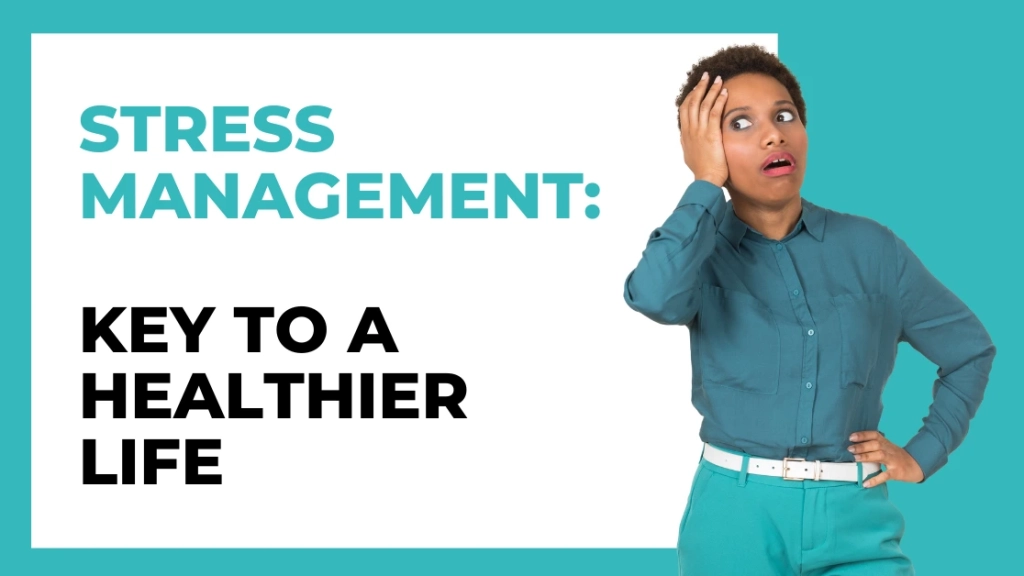In today’s fast-paced world, stress management has become an inevitable part of life. Whether it’s meeting work deadlines, managing personal responsibilities, or coping with unexpected challenges, stress affects people of all ages and backgrounds, One needs to find alternatives to this stress as its management is essential for the healthy well-being of an individual.
While occasional stress can be motivating and help individuals perform better in their professional as well as personal lives, chronic stress can lead to serious health issues, including high or low blood pressure, cardiovascular diseases, and mental health disorders. Effective management of stress is not just about staying calm but also about maintaining overall well-being while performing daily activities in the day.

Understanding Stress
Stress is the body’s natural response to perceived threats or challenges. It triggers the ‘fight-or-flight’ reaction, releasing hormones like adrenaline and cortisol, which prepare the body to either confront or escape danger. While this response is crucial for survival, chronic activation of this system can lead to harmful physical and emotional effects.
Ayurveda, the ancient Indian system of medicine, offers a holistic approach to stress management by balancing the body, mind, and spirit. According to Ayurveda, stress is primarily caused by an imbalance in the doshas (Vata, Pitta, and Kapha).
Stress Management as per Ayurveda, is derived when we move away from our ‘Aatman’ and be close to our physical forms. Physical pursuits and pressures give us stress.
There are different types of stress:
- Acute Stress: Short-term stress that occurs in response to an immediate threat or challenge. It usually goes away once the situation is resolved.
- Chronic Stress: Long-term stress that persists over an extended period due to ongoing pressures, such as financial difficulties, relationship issues, or work-related challenges.
- Episodic Acute Stress: This occurs when individuals frequently experience acute stress, leading to irritability, anxiety, and tension.
Understanding the type of stress one is experiencing is essential for managing it effectively.
How Stress Affects the Body and Mind of an Individual
Prolonged stress negatively impacts the body and mind in several ways:
- Mental Health Issues: Chronic stress can lead to anxiety, depression, and mood swings. It can also impair concentration, memory, and decision-making abilities.
- Physical Health Problems: Stress increases the risk of cardiovascular diseases, weakens the immune system, and contributes to digestive issues such as irritable bowel syndrome (IBS).
- Hormonal Imbalances: Continuous release of cortisol and adrenaline disrupts hormonal balance, affecting sleep patterns, appetite, and overall energy levels.
- Impact on Blood Pressure: Stress is closely linked to blood pressure fluctuations. During stressful situations, the body releases hormones that temporarily increase blood pressure. Chronic stress can contribute to long-term high blood pressure (hypertension) or even low blood pressure (hypotension) due to hormonal imbalances.
Effects of Stress on Blood Pressure
Nowadays, High blood pressure (hypertension) and low blood pressure (hypotension) are common stress-related conditions:
- High Blood Pressure (Hypertension): During stressful situations, blood vessels constrict, and the heart rate increases, leading to a temporary spike in blood pressure. If stress becomes chronic, it can lead to persistent hypertension, increasing the risk of heart attacks and strokes.
- Low Blood Pressure (Hypotension): In some cases, chronic stress can lead to fatigue, dizziness, and low blood pressure due to hormonal imbalances and poor circulation.
Managing stress effectively is crucial for maintaining healthy blood pressure levels and preventing complications related to cardiovascular health.
Signs and Symptoms of Stress
Identifying stress early helps in managing it effectively. Common signs and symptoms include:
- Emotional Symptoms: Irritability, anxiety, depression, mood swings, and a feeling of being overwhelmed.
- Physical Symptoms: Headaches, muscle tension, fatigue, sleep disturbances, and digestive issues.
- Behavioral Symptoms: Overeating or undereating, increased use of alcohol or drugs, and withdrawal from social interactions.
Recognizing these symptoms and taking timely action can prevent the negative effects of chronic stress on health.
Effective Stress Management Techniques as per Ayurveda-
Stress Management Tips According to Ayurveda
- Follow the Biological Clock
- Wake up early and freshen up to sync with nature’s rhythm.
- Maintain a consistent sleep schedule for optimal rest.
- Eat dinner early to aid digestion and promote better sleep.
- Stay Connected with Nature
- Engage in nature walks to relax the mind and body.
- Use air conditioners mindfully, only when necessary.
- Drink water stored in clay pots to maintain body balance.
- Consume foods in their natural forms for better nourishment.
- Incorporate pranayama (breathing exercises) and daily walks for holistic well-being.
- Balance Work Pressure and Screen Time
- Set boundaries for work hours to reduce burnout.
- Limit screen exposure to minimize mental fatigue.
- Practice digital detox by taking breaks from electronic devices.
- Focus on Spiritual and Emotional Health
- Engage in meditation and mindfulness practices.
- Cultivate positive emotions like gratitude and compassion.
- Strengthen emotional resilience through spiritual practices.
- Eat Home-Cooked Meals
- Prioritize homemade food to maintain mental harmony.
- Balance the three Manas Doshas:
- Satva: Promotes clarity and calmness.
- Rajas: Encourages energy and motivation.
- Tamas: Aids relaxation when balanced.
- Avoid processed foods to maintain mental and physical equilibrium.
Treatments such as Shirodhara, Nasya, Shiropichu, Shirobasti, and Pranayam are recommended, along with proper counseling and a 3-month course of Ayurvedic medicines for effective healing and well-being.
These Ayurvedic practices help in aligning with your inner self (Aatman), reducing stress, and promoting overall wellness.
Impact of stress on Blood Pressure
There are various Treatment for High/Low BP in Ayurveda. Managing stress is crucial for maintaining healthy blood pressure.
- High Blood Pressure (Hypertension): Lifestyle changes like reducing salt intake, regular exercise, and stress management techniques are effective. In some cases, medication may be required under medical supervision. Mindfulness, yoga, and relaxation techniques can help lower high blood pressure.
- Low Blood Pressure (Hypotension): Increasing salt intake moderately, staying hydrated, eating small frequent meals, and avoiding sudden posture changes help stabilize blood pressure. In some cases, medication may be recommended to regulate blood pressure levels.
Consulting a healthcare professional is essential for personalized Ayurveda treatment plans.
Long-Term Benefits of Stress Management with Ayurveda
Effective stress management offers numerous long-term benefits, including:
- Improved mental health and emotional resilience.
- Enhanced immune function and reduced risk of chronic diseases.
- Better sleep quality and increased energy levels.
- Balanced blood pressure and improved cardiovascular health.
- Greater productivity, focus, and overall life satisfaction.
Conclusion
Stress is an unavoidable part of life, but it doesn’t have to control you. By adopting effective stress management techniques and maintaining a healthy lifestyle, you can enhance your overall well-being and prevent complications like high or low blood pressure. Prioritizing mental and physical health is key to leading a balanced and fulfilling life.
If you experience persistent stress or abnormal blood pressure levels, consult DeepVeda Ayurveda & Panchakarma Clinic, where Dr. Sneha provides the Best Ayurvedic care in Navi Mumbai—a healthcare professional for personalized advice and treatment.






